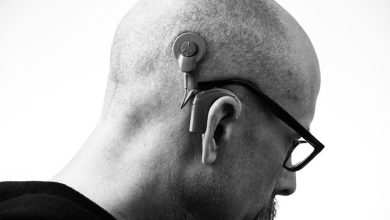Tips for Managing the Emotional and Social Impact of Hearing Loss

Did you know that hearing loss affects individuals of all ages and backgrounds? Managing the emotional and social impact of hearing loss is crucial for maintaining a high quality of life. In this article, we will explore various tips and strategies to help individuals cope with the challenges that accompany hearing loss. From recognizing the signs and symptoms to seeking professional help and support, this comprehensive guide aims to provide valuable insights and practical advice for enhancing communication skills and fostering meaningful relationships.
Recognizing the Signs and Symptoms of Hearing Loss
One of the key steps in managing hearing loss is recognizing the common signs and symptoms that may indicate a decline in auditory function. Understanding the importance of early intervention is crucial, as early identification and treatment can greatly improve outcomes. Recognizing the impact of hearing loss on daily life is equally important. Individuals with hearing loss may experience difficulties in communication, social interactions, and overall quality of life. Common signs of hearing loss include difficulty hearing conversations in noisy environments, frequently asking others to repeat themselves, turning up the volume on electronic devices, and experiencing ringing or buzzing sounds in the ears. If you or a loved one are experiencing any of these symptoms, it is important to seek professional help promptly. By recognizing the signs and symptoms of hearing loss, you can take the necessary steps towards managing your condition and improving your overall well-being.
Understanding the Emotional and Social Impact of Untreated Hearing Loss
Understanding the emotional and social impact of untreated hearing loss can help individuals comprehend the extensive effects it can have on their well-being and relationships. When hearing loss goes untreated, it can lead to feelings of isolation, frustration, and even depression. Communication becomes challenging, leading to misunderstandings and strained relationships. The inability to fully participate in conversations and social activities can cause individuals to withdraw from social interactions, affecting their emotional well-being. To provide a deeper understanding of the impact of untreated hearing loss, the following table illustrates the potential consequences on relationships and emotional well-being:
| Impact on Relationships | Emotional Well-being |
|---|---|
| Misunderstandings and conflicts | Feelings of isolation |
| Communication breakdowns | Frustration and anger |
| Social withdrawal | Loss of self-confidence |
| Strained relationships | Depression and anxiety |
| Reduced quality of life | Decreased overall happiness |
It is crucial to acknowledge the emotional and social impact of untreated hearing loss and take proactive steps to address it. Seeking professional help and exploring treatment options such as hearing aids can significantly improve both relationships and emotional well-being.
Accepting the Reality of Hearing Loss and Seeking Professional Help
To effectively manage the emotional and social impact of hearing loss, individuals must come to terms with the reality of their condition and actively seek professional assistance. Accepting the reality of hearing loss is the first step towards finding solutions and improving one's quality of life. Here are three important reasons why accepting the reality of hearing loss and seeking professional support is essential:
- Proper diagnosis and understanding: By seeking professional help, individuals can receive a thorough examination and accurate diagnosis of their hearing loss. This understanding is crucial in developing a personalized treatment plan that addresses specific needs and concerns.
- Access to effective treatment options: Professionals can guide individuals in exploring various treatment options, such as hearing aids or assistive devices, to improve their hearing abilities. They can provide recommendations based on the severity and type of hearing loss, ensuring that individuals have access to the most suitable solutions.
- Emotional support and guidance: Dealing with hearing loss can be emotionally challenging, and seeking professional support can provide individuals with the necessary guidance and emotional reassurance. Professionals can offer coping strategies, counseling, and resources to help individuals navigate the emotional and social impact of hearing loss.
Exploring Treatment Options for Managing Hearing Loss
Hearing aids, along with other treatment options, can significantly improve the quality of life for individuals managing hearing loss. While hearing aids are the most common solution, it is important to explore alternative therapies and understand other options available. For individuals with severe to profound hearing loss, cochlear implants may be a viable option. Cochlear implants are surgically implanted devices that bypass damaged parts of the inner ear and stimulate the auditory nerve directly. This technology allows individuals to perceive sound, even if they have little to no residual hearing. It is important to consult with a hearing professional to determine if cochlear implants are suitable for your specific hearing loss. By exploring different treatment options and understanding the benefits of each, individuals can make informed decisions about managing their hearing loss and improving their overall well-being.
Embracing the Benefits of Wearing Hearing Aids
Wearing hearing aids provides individuals with the opportunity to improve their communication skills and enhance their social interactions. Here are three key benefits of wearing hearing aids:
- Improved Speech Understanding: Hearing aids amplify sounds, making it easier to understand conversations and speech. This enables individuals to actively participate in conversations, reducing frustration and enhancing their communication skills.
- Enhanced Social Engagement: Hearing loss can lead to feelings of isolation and withdrawal from social activities. Wearing hearing aids helps individuals stay connected with their loved ones, friends, and colleagues, allowing them to fully engage in social interactions and maintain meaningful relationships.
- Enhanced Quality of Life: By improving communication skills, hearing aids can significantly enhance an individual's overall well-being. Clearer communication leads to increased confidence, improved mental well-being, and a higher quality of life.
Overcoming Self-Consciousness and Embracing Communication With Hearing Aids
Self-confidence plays a crucial role in embracing communication with hearing aids and overcoming self-consciousness associated with wearing them. It is important to recognize that wearing hearing aids is a positive step towards improving communication and social interactions. Building confidence with hearing aids starts with accepting your hearing loss and understanding the benefits of wearing hearing aids consistently. Make wearing hearing aids a regular part of your daily routine, and follow proper maintenance and care instructions to ensure optimal performance. It is also essential to stay updated with advancements in hearing aid technology to maximize their benefits. Practicing communication strategies, such as informing others about your hearing loss and utilizing visual cues, can further enhance your confidence in social situations. Remember, embracing communication with hearing aids is a journey, and with time and practice, you can overcome self-consciousness and build confidence.
Practicing Effective Communication Strategies for Better Interactions
Utilizing appropriate communication strategies is crucial for fostering better interactions and improving overall social engagement for individuals with hearing loss. Here are three effective strategies to consider:
- Improving Listening Skills: Active listening involves focusing on the speaker, maintaining eye contact, and paying attention to non-verbal cues. By practicing active listening, individuals with hearing loss can enhance their understanding and engagement in conversations.
- Utilizing Assistive Devices: Assistive devices, such as hearing aids or cochlear implants, can significantly improve communication abilities. These devices amplify sounds and filter out background noise, making it easier to hear and understand conversations. Individuals should consult with a hearing professional to determine the most suitable device for their specific needs.
- Seeking Clarification: It is important to seek clarification when necessary. If there is uncertainty about what was said, individuals should politely ask the speaker to repeat or rephrase their statement. Active participation and clarifying communication can help bridge any gaps in understanding and facilitate better interactions.
Staying Connected With Loved Ones Despite Hearing Loss
Maintaining strong relationships is crucial for individuals with hearing loss to stay connected with their loved ones despite the challenges they may face. Communication may become more difficult, but there are strategies that can help bridge the gap. It is important to adjust communication methods to accommodate your hearing loss. Utilizing text messaging, email, or social media can be effective ways to stay in touch. When engaging in face-to-face conversations, choosing quieter environments can minimize background noise and enhance communication. Openly communicating with loved ones about your hearing loss and its impact can foster understanding and support. Despite the obstacles, making an effort to maintain strong relationships is essential for emotional well-being and social connection. By staying connected and actively participating in relationships, individuals with hearing loss can continue to nurture and strengthen the bonds they share with their loved ones.
Embracing Overall Well-Being Through Managing Hearing Loss
Improving one's overall well-being is a tangible outcome of effectively managing hearing loss. Embracing self-care and seeking support are crucial aspects of this journey. Here are three key ways to embrace overall well-being through managing hearing loss:
- Prioritize self-care: Take care of your physical and mental health by engaging in activities that bring you joy and relaxation. This could include exercise, meditation, or pursuing hobbies. Remember to schedule regular breaks and practice stress management techniques to reduce any negative impact on your well-being.
- Seek support: Reach out to friends, family, or support groups who can provide understanding and empathy. Connecting with others who have experienced similar challenges can offer valuable insights and emotional support. Additionally, consider seeking professional counseling to address any emotional or psychological impact of hearing loss.
- Advocate for yourself: Be proactive in managing your hearing loss by staying informed about advancements in technology and treatment options. Take an active role in discussions with healthcare professionals and ask questions to ensure that you receive the best possible care and support.


